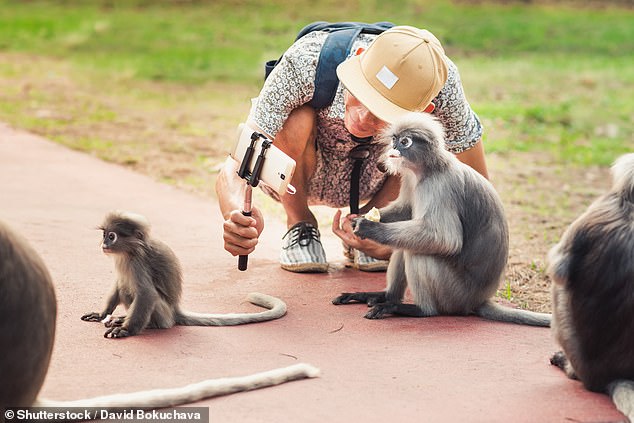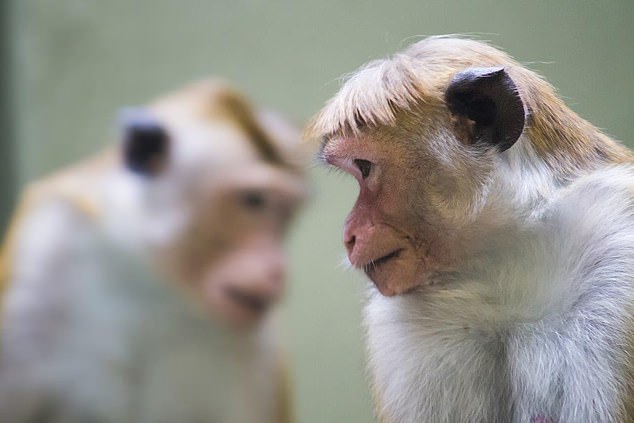- A man contracted the virus after being attacked by a monkey in a rural park
- He was rushed to the emergency room and is now in “critical condition.”
- READ MORE: Inside the NIH virus lab in Montana, which has disturbing ties to Wuhan
<!–
<!–
<!– <!–
<!–
<!–
<!–
Hong Kong has issued a health alert after a man contracted a rare and deadly virus from a monkey bite.
The man, 37, reportedly contracted the virus after being attacked during his visit to Kam Shan Country Park, also known as Monkey Hill, in late February.
The man was rushed to the emergency room due to fever and reduced level of consciousness. He is now in the intensive care unit and is in “critical” condition.
This is the first human infection with monkey virus B, also known as herpes simiae virus, recorded in Hong Kong, but cases have previously been reported in the United States, Canada, mainland China and Japan.
The Hong Kong Center for Health Protection warned the general public to avoid touching or feeding wild monkeys to reduce the risk of contracting the virus.

The man reportedly contracted the virus after being attacked by a monkey during his visit to Kam Shan Country Park, also known as Monkey Hill, in late February (file image)


People can become infected if they are bitten or scratched by an infected macaque monkey (file image), if they come into contact with the monkey’s eyes, nose or mouth.
Otherwise, the man was in good health, according to a statement posted on the Hong Kong government website and was admitted to hospital on March 21.
On Wednesday, fluid from his spine tested positive for the B virus.
According to the CDC, the virus is extremely rare, but can cause serious brain damage or death if not treated quickly.
The herpes B virus kills about 70 percent of sufferers if not diagnosed and treated in time.
People can become infected if they are bitten or scratched by an infected macaque monkey, or if they come into contact with the monkey’s eyes, nose, or mouth.
Macaque monkeys are often infected by the virus, but do not show symptoms.
Symptoms in people begin as typical flu-like symptoms, including fever and chills, muscle pain, fatigue, and headache. Other signs may include nausea and difficulty breathing.
People may develop small blisters on the wound or area that has been in contact with the monkey.
Symptoms usually begin within a month of being exposed to an infected monkey, but can appear as early as three days.
There has only been one case of an infected person transmitting the B virus to another person.
The herpes B virus is found naturally in the saliva, urine and feces of macaques, which are frequently found in Hong Kong, according to the CDC.
There is currently no vaccine against herpes B.
The virus belongs to the herpes family. There are more than 100 known herpesviruses, but eight commonly infect only humans.
Since the virus was discovered in 1932, 50 human cases have been documented. About two-thirds of them occurred in the United States. Of the 50 cases, 21 were fatal.
The virus can be treated with antiviral medications. Antiretroviral therapy is sometimes used, depending on the condition of the macaque monkey, how well and how quickly the wound was cleaned, and the nature of the wound.
